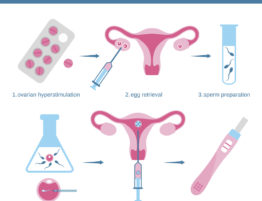Weed, pot, reefer, marijuana – whatever you call it, it’s now fair game in California, and it’s a hot topic in many legal publications.
Most articles speak positively about California’s new legislation, citing a positive impact on real estate and zoning, along with increased attendance at City Council meetings. As a surrogacy lawyer and adoption advocate, I have clients with different concerns.
How does using marijuana during pregnancy affect infants? What if a surrogate uses marijuana during pregnancy? What are the effects of prolonged exposure to second-hand marijuana smoke?
A Lack of Facts & Figures
At Dr. Oscar Larrazolo’s recent lecture, “Drug Effects on the Fetus,” I learned that just under 4% of women admit to using marijuana during pregnancy.
Fortunately, there are no firm linkages between birth defects and marijuana.
By the same token, almost no studies exist on how fetuses are affected by in utero ingestion of cannabis or secondhand marijuana smoke.
What do Experts Think?
Dr. Larrazolo indicated that prenatal exposure may lead to increased newborn irritability, abnormal visual response to light stimulus, and increased risk of bronchiolitis.
He also suggested looking at similar scientific studies to extrapolate other possible effects. By looking at how systemic cannabis exposure impacts children, and how smoking cigarettes during pregnancy impacts a fetus, we might expect to see the following in children exposed to marijuana:
- Stillbirths
- SIDS
- Preterm delivery
- Low birthweights
- Smaller brains
- More attention problems
- Lowered cognitive functions
- Decreased growth
- Frequent academic difficulties
- Decreased IQ scores
While we don’t know much, a lack of data might be a good thing. We hope this means that women are choosing not to consume marijuana, or be around a smoky environment, while pregnant.
What does this mean if you’re considering a surrogate?
As the legalization of marijuana spreads across the county, I expect it will continue to worry would-be-parents as they enter into surrogacy contracts.
Luckily, drug use during pregnancy is highly stigmatized and considered taboo in our culture. Regardless of legality, the majority of women are unlikely to do it.
For those still concerned about their surrogate and marijuana consumption, I like to remind them of the following procedures and safeguards in place:
- Most reputable IVF clinics will not work with a surrogate unless she has already carried a successful pregnancy and delivery with no health conditions reported.
- Your gestational carrier has been carefully screened, including a thorough physical and psychological evaluation, plus a background check.
- Your surrogacy contract compels her to stay healthy during pregnancy and explicitly forbids her from using any drugs or alcohol or even having prolonged exposure to second-hand smoke.
- The contract is painstakingly reviewed by each party and their respective lawyer. Every term is discussed, included the consequences of what happens if the surrogate breaks any of her promises.
- The IVF clinic nurse will also discuss the consequences with your surrogate.
- The matching agency will too, and ensure she understands the importance of these promises.
- Parents have the right to request drug tests throughout the pregnancy, ask an agency representative to accompany the surrogate to doctor appointments, as well as ask for house call check-ins.
Growing your family should be a beautiful thing, and we want you to focus on that. There are several steps in place to ensure your surrogate gives birth to a healthy and beautiful new baby.
For any inquiries or questions regarding surrogacy contacts, please contact our office at 858-800-2532 or via our website.













